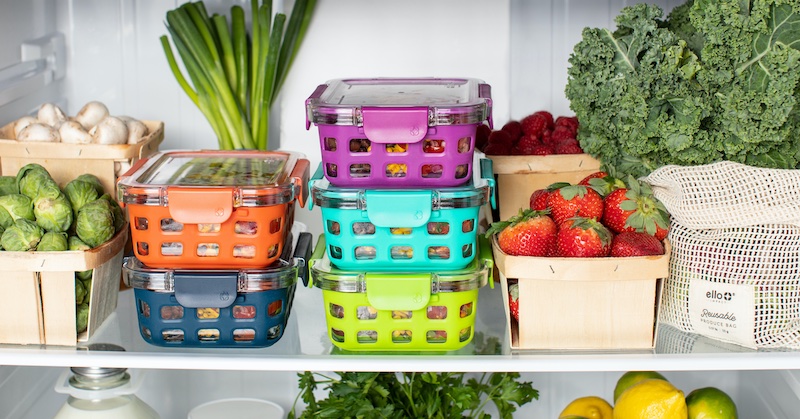Does Renters Insurance Cover Food Loss?
Your policy may cover spoiled food, depending on the cause.

Your policy may cover spoiled food, depending on the cause.

Your renters insurance policy will cover certain types of food loss, though it depends on what exactly happened to spoil your grub.
Let’s take a look at how your renters policy may apply in the case of food loss, whether the cause is a power outage or water damage.

Your renters insurance policy will cover food that is damaged or lost in your fridge, freezer, or kitchen due to certain specific causes—like fire, water from burst pipes, or certain power outages that are caused by direct damage to your property.
Always keep in mind that every claim is unique. And before your insurer reimburses you for a claim, you’ll be responsible for your deductible—the amount of money you’ve agreed to pay out-of-pocket for any claim.
Let’s break down common scenarios where coverage may be available.
As with most aspects of renters insurance, coverage depends on the cause of damage. Here are some food loss scenarios that you probably won’t be covered for.
Frustrated by these coverage gaps? Lemonade’s new Food Spoilage Add-On covers exactly these everyday scenarios. For just $0.33/month in Georgia (more states soon), you’re protected when your fridge fails, during city-wide outages, or equipment failures regardless of the cause.
There are a few handy tips to follow if you want to preserve food in your fridge or freezer during a temporary power outage.
Every time you open the door of your refrigerator or freezer, the cold air rushes out. During a power outage, it’s essential to minimize the number of times you open these appliances. A refrigerator will typically keep food cold for about 4 hours if the door is not opened, and a full freezer can keep cold for around 48 hours.
Transfer perishables like meat, dairy, and certain medications to an insulated cooler filled with ice packs or ice. Additionally, tossing bags of ice or frozen water bottles in the refrigerator or freezer can help maintain colder temperatures and fill empty space, which helps to keep the temperature down.
The refrigerator’s temp should stay at or below 40°F (4°C), and the freezer should be at or below 0°F (-18°C). If the temperature rises above these levels for prolonged periods (2 hours or more), some foods may become unsafe to eat.
If you want to be defended against possible food loss, here are a few best practices to follow.
Documenting your freezer’s contents might sound odd, but it’s vital when filing a renters insurance claim. This is especially important if you’re an amateur at-home chef and have a fridge full of fancy ingredients.
Always read your policy and know what it covers. Getting a renters insurance quote might be easy, but knowing the details requires a closer look.
Always inform your insurer ASAP after discovering the loss.
Though renters insurance does cover food loss in specific scenarios, it’s super important to be well-acquainted with the terms of your policy.
Meanwhile, if you don’t yet have a policy, getting a quote only takes a few minutes. You’ll have extra peace of mind in the event of a fridge-related disaster, plus all the other curveballs that life can throw your way.
*Certain states, like California, may have exceptions to possible coverage in the event of a power outage that isn’t caused by direct damage to your own house, so be sure to check your policy details. In some states, your Lemonade policy may cover up to $500 in lost food stored in freezers or fridges that results from a power outage or interruption which occurs off your own property.
A few quick words, because we <3 our lawyers: This post is general in nature, and any statement in it doesn’t alter the terms, conditions, exclusions, or limitations of policies issued by Lemonade, which differ according to your state of residence. You’re encouraged to discuss your specific circumstances with your own professional advisors. The purpose of this post is merely to provide you with info and insights you can use to make such discussions more productive! Naturally, all comments by, or references to, third parties represent their own views, and Lemonade assumes no responsibility for them. Coverage and discounts may not be available in all states.
Please note: Lemonade articles and other editorial content are meant for educational purposes only, and should not be relied upon instead of professional legal, insurance or financial advice. The content of these educational articles does not alter the terms, conditions, exclusions, or limitations of policies issued by Lemonade, which differ according to your state of residence. While we regularly review previously published content to ensure it is accurate and up-to-date, there may be instances in which legal conditions or policy details have changed since publication. Any hypothetical examples used in Lemonade editorial content are purely expositional. Hypothetical examples do not alter or bind Lemonade to any application of your insurance policy to the particular facts and circumstances of any actual claim.